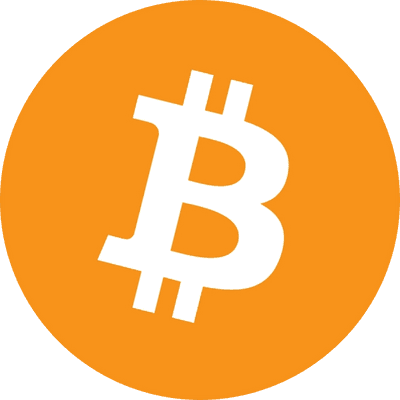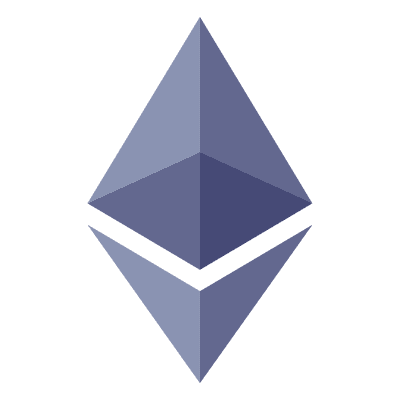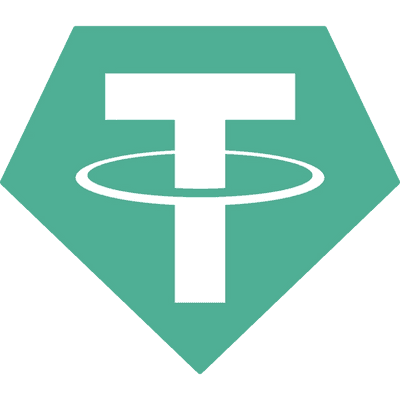October 2021; Top 5 Cryptocurrencies: What do the tokens actually do?

I've searched for but have been unable to find a resource that summarises, in simple terms, the use cases of the top 5 cryptocurrency tokens by market cap. This is why I've written this article; hopefully you will find it interesting and informative.
As you are likely aware, there are many different types of cryptocurrency tokens.
Some tokens are seeking to be 'sound money', 'stores of value' and 'non-government controlled currency' like Bitcoin; others are open-source software development platforms, where decentralised applications - or dApps for short - can be built like Ethereum. Owning a crypto token itself is simply owning a stake in the respective protocol. The reason all types of tokens get bunched together is that, regardless of which protocol the crypto token relates to, it has a capital trading value that investors and traders speculate on by buying or selling; generally by using an exchange or an Over The Counter (OTC) broker.
There is almost an infinite list of cryptocurrency tokens. Many have unique characteristics distinct from one another relating to security, supply, decentralisation and algorithms. For token creator teams, whom are typically software developers, it is all about differentiation, unique selling points and/or building upon successes of other protocols and fixing their perceived weaknesses.
The one thing I want to make clear is that all of the tokens are not in direct competition with one another. Those who think that they are, are confusing the concept of investment (the opportunity to make money speculating on the price of tokens going up or down) with what the protocol actually does - the latter being the 'use case'.
If you are thinking about speculating on the price of crypto tokens - by investing - then my strong view is that you really ought to take time to understand whether the protocol has value to the world. This is what will drive the price of the tokens over the longer term.
Read on for a simple summary of each of the top 5.
At a glance
- Bitcoin (BTC) Rated 4.6 out of 5
- Ethereum (ETH) Rated 3.9 out of 5
- Tether (USDT) Rated 3.5 out of 5
- Binance Coin (BNB) Rated 3.8 out of 5
- Cardano (ADA) Rated 3.6 out of 5
1 Bitcoin (BTC)

- Network Effect:
The first and most well known crypto.
- Real World Value Proposition:
A digital store of wealth and permission-less payments.
- Community Engagement:
Community can come across as arrogant to newcomers.
- Future Potential:
Huge.
- Decentralisation:
Highly decentralised globally.
Bitcoin is the first successful internet money whereby no government or central authority (e.g. a bank) is involved in the transaction or production of it.
Bitcoin is not completely anonymous, contrary to many incorrect reports. In fact, it uses a public blockchain (a public online database) which is accessible by anyone with an internet connection.
The Bitcoin blockchain records every transaction that has ever (and will ever) take place on the Bitcoin network. The 'anonymity' idea derives from the fact that unless you know who owns the wallet address (the unique code of letters and numbers recorded publicly on the blockchain), those using the network to transact value can potentially stay anonymous. However, exchanges and other intermediaries which enable the purchase, sale and storage of cryptocurrencies are required, as a result of government regulations, to make you identify yourself prior to using them. So in practice, a relatively small number of transactions are genuinely anonymous. However, a skilled person could indeed transact anonymously; a significant win for the concept of privacy in a world where we are all surveyed with increasing regularity.
In the 13 years since its inception, Bitcoin’s use case has somewhat shifted in my opinion, from ‘potentially the future world reserve currency’ to:
- a means of exchanging value online, which, in a short amount of time, will be as easy to send and receive as an email; and
- a store of value in the same way gold has been a store of value throughout history. A good store of value is necessary because of extremely low interest rates and debt based central bank policies which have the effect of eating away at the money one has stored from his or her labour or that one has generated through investing.
Bitcoin is undoubtedly a game changer in world finance. It is truly global and has no borders; this is one of the many reasons why the potential for price appreciation by owning the token is enormous in my view. It also has 'first mover' advantage which has undoubtedly supercharged its network effect.
However, only an estimated 1.3% of people in the world currently own Bitcoin.
This includes those who own a fraction of a Bitcoin, known as a 'Satoshi' or 'Sat'. Many people believe that, as a result of the fixed supply of 21 million Bitcoin that will exist in total once all are mined, that the value of each Bitcoin token will continue to appreciate in the future. Referred to by many as 'Gold 2.0' and coined (pardon the pun) as the most superior store of value ever created; in my view, the reality is, it is way better than that.
If you use the link above to create a Coinbase account and purchase some BTC, you will receive some free Bitcoin into your account.
Minimum purchase of £72/$100 (or equivalent) to receive the free Bitcoin.
If you find this article informative or useful and want to purchase some crypto, I would appreciate it if you use this link. You also directly benefit by receiving free crypto!
2 Ethereum (ETH)

- Network Effect:
Large network, ever increasing.
- Real World Value Proposition:
Multiple and wide ranging.
- Community Engagement:
Mainly (welcoming) software developer types.
- Future Potential:
Huge, but many (relatively) worthy competitors.
- Decentralisation:
Not particularly decentralised.
If Bitcoin pioneered blockchain technology as the first cryptocurrency, Ethereum was first to expand on it - in a big way.
Ethereum - the protocol and technology - is best described as a global network that underpins an interconnected marketplace of decentralised applications (dApps) — including decentralised autonomous organisations (DAOs), Initial Coin Offerings (ICOs), stablecoins, decentralised finance (DeFi) and non-fungible tokens (NFTs).
Ethereum is not a store of value like Bitcoin, however, many - myself included - own Ethereum as we believe the value of the protocol is greater than the total value stored in the network currently. Meaning that, in the future, the value of our tokens will be greater than they are today.
One of Ethereum's defining features is the development and use of 'smart contract' technology which enables the automatic execution of actions if certain measurable conditions are met. It is the concept of smart contracts which enables the interconnected marketplace mentioned above.
Some of Ethereum’s most widely used mind-blowing technologies are as follows:
- DAOs - DAOs should be thought of as a set of rules written in code for an organisation of people to act in accordance with, in pursuit of a common goal. The point of a DAO organisation is that the operation of that group of people working towards the goal does not need a centralised authority to make decisions as the pursuit of the goal progresses (e.g. it does not need a board of directors or steering group to decide its direction as things progress). Many say that the non-dependency on people is why Bitcoin has value - it is permission-less and trust-less meaning that a third party need not give you the go-ahead to participate. The key reason folks like DAOs is that: human irrationality, greed or other emotions can be extremely harmful to a group of people being led by a leader (or leadership team) in the groups collective pursuit of a goal. There are clearly other downsides, such as, a lack of situational agility), but DAOs, overall, represent a very exciting technological advancement and opportunity in a new potentially 'trust-less' world.
- ICOs - an ICO is fundamentally a method of raising funds for a project or business; they are predominantly used by start-ups within the crypto or blockchain space and as an alternative to selling shares; therefore a particularly attractive option for the founders to get paid out or reduce their own investment risk. Prior to Ethereum, raising funds on a large scale could not be done easily for the vast majority of startups. Think of it like a IPO (Initial Public Offering - where an established company floats on a stock market like the NASDAQ), but for startups, in tech. The key difference to a company issuing tokens to an investor, instead of shares, is that the tokens will not give the investor equity in the company. This is an extremely high risk way of investing, but it does give an investor exposure to potentially 100x or even 1000x returns - sometimes more. In my view, ICOs are very risky to be involved with as bad actors use them to get rich themselves by creating a useless token, usually marketed well with the use of paid influencers on social media, and then disappearing. Thankfully, due to the more regulatory oversight now in the industry, I am hoping that those days have been left in year 2017 or there about.
- Stablecoins - stablecoins are a type of cryptocurrency whereby their value is tied to a fiat currency, such as the United States Dollar or British Pound Sterling. There are many uses of stablecoins in the crypto ecosystem, but the most notable for the everyday trader or investors is that one can sell cryptocurrency for a stablecoin easily (within the exchange platform), thereby de-risking one's exposure to cryptocurrency without 'cashing out' to a bank account. In the past, banks have been known to censor their customers' transactions, and even close accounts, when customers interact with cryptocurrency services. The most well-known stablecoin is Tether. In time, I think stablecoins will be seen as a systemic risk to the financial system by governments and may be made illegal. The fact that I write that statement should convey how much of a success I believe the innovation of Stablecoins to be. One to watch - and make use of - for now.
- DeFi - DeFi (short for Decentralised Finance) is an umbrella term for a number of financial services and products that are set up to disrupt financial intermediary businesses by offering more choice to consumers. The key concept is that they are software platforms like a company would develop and provide to consumers, but DeFi platforms are not managed by human authority and therefore are outside of the jurisdiction of regulators. There is nobody at the DeFi exchange to prosecute or put in jail for acting in breach of rules or regulations - there is no CEO, no Board of Directors and no Shareholders. Another phenomenally impressive technological innovation, with a big future. Good for the people, bad for the establishment and governments who lose oversight and control.
- NFTs - the concept of NFTs describe the apportionment and ownership of what lawyers call 'intellectual property'. Intellectual property is the concept of owning non-physical property and having the ability to enforce or defend your ownership rights in law. NFTs allow for creators, artists, brands, performers and all others to own, prove ownership, sell and transact with their own intellectual property directly with others; thereby reducing the need for (and cost of) middle men. Through NFTs, one can now easily prove ownership to something unique (or scarce), digitally, and have that ownership verified on the blockchain so it can be sold, rented out or even sold in part.
In terms of what the Ethereum - or the ETH token - does, it is simply a stake in the protocol itself.
Ethereum's success or failure is less linked to the price of the token than, for example, Bitcoin. As a reminder, this is because Bitcoin's main use case is that it is the best 'store of value' or 'hard money' available (because of it's programmed scarcity); whereas, Ethereum is a global network that underpins an interconnected marketplace of decentralised applications.
However, a high priced Ethereum token does imply a desire for, and interest in, the technology the smart contract technology enables. I personally find it difficult to quantify the opportunity of owning Ethereum as an investor (relative to owning some other crypto tokens) for these reasons. My overall view is that the overall cryptocurrency and the smart contract ecosystems are so young that buying and holding Ethereum is probably a good idea over the medium-long term. That is not unique to Ethereum though, as I think there are many protocols out there which are not even close to peak network effect.
The question for investors looking for maximum returns is really: "which protocols that I could invest in will outpace others that I could alternatively invest in?".
So, what does the Ethereum token do? In addition to giving exposure to the owner of the potential upside in the token price over time, owning it gives the owner the chance to participate in the protocol and therefore access DAOs, ICOs, Stablecoins, DeFi and NFTs. The participant would then likely spend their ETH token to partake in an ICO, use a DeFi platform or purchase an NFT (many of them will have their own native cryptocurrency tokens which one would receive in exchange for one's ETH when deciding to participate).
A pretty complicated world. But an incredibly exciting one at the same time. Just when you think you know everything about Ethereum, it forces you to broaden your horizons on what is possible because of this incredible technology. Seriously fascinating.
If you use the link above to create a Coinbase account and purchase some ETH, you will receive some free Bitcoin into your account.
Minimum purchase of £72/$100 (or equivalent) to receive the free Bitcoin.
If you find this article informative or useful and want to purchase some crypto, I would appreciate it if you use this link. You also directly benefit by receiving free crypto!
3 Tether (USDT)

- Real World Value Proposition:
Extremely valuable tool to the crypto and financial industries.
- Future Potential:
Questionable. Great tech but cause of concern to governments.
Tether is an Ethereum based cryptocurrency. You may hear it being referred to as an ERC20 token - which is simply a type of cryptographically secured token running on the Ethereum protocol.
Unlike the vast majority of crypto tokens which are not actually forms of 'currency' like the umbrella name would suggest (most are more akin to assets or membership tokens), Tether works as an actual currency.
Tether has the characteristics of currency in a traditional sense and is not liable to price swings like other crypto tokens because the price of each unit of Tether is directly pegged to the United States Dollar.
Why do we need a digital Dollar that isn't the Dollar? Well, there are many reasons it is useful, particularly to participants in the cryptocurrency industry.
In Crypto's 13-year history, the intersection between banking services and crypto services like Coinbase or Binance have been fragile. This is because of the banks' heavy handed compliance practices which are in place to try to prevent money flowing through their bank which is related to financial crime. Money laundering and Fraud, mainly.
Tether enables, amongst other things, for coin-economy participants to not have to sell the proceeds of their crypto investments back into their bank account. They can simply sell their Bitcoin for Tether and hold that non-volatile asset pegged to the US Dollar all within the Exchange's platform. This simplifies ownership of crypto for consumers and lowers the chance of their bank closing their bank account for falling foul of the bank's 'risk' thresholds which were not built with cryptocurrency (or stablecoins) in mind.
Last but not least - and this is was one of my favourite technological advancements - a participant in the coin economy can earn 10%-15% interest per year in a 'crypto bank account' by using the Tether as the deposited 'money'. When you compare this to the market leading interest rates I can obtain on Great British Pounds in a traditional savings bank account in the UK, 10%-15% interest per year is dreamland. This is no longer confined to stablecoins though because you can now use your Bitcoin, Ethereum and many other cryptocurrencies as collateral in 'crypto bank accounts'. An article on the options in this regard is coming soon.
If you use the link above to create a Coinbase account and purchase some Tether (USDT), you will receive some free Bitcoin into your account.
Minimum purchase of £72/$100 (or equivalent) to receive the free Bitcoin.
If you find this article informative or useful and want to purchase some crypto, I would appreciate it if you use this link. You also directly benefit by receiving free crypto!
4 Binance Coin (BNB)

- Network Effect:
Leveraged the Binance Exchange user base from day 1.
- Real World Value Proposition:
An affordable and extremely efficient smart contract platform.
- Community Engagement:
Highly engaged and capable.
- Future Potential:
Enormous, but concerns about centralisation.
- Decentralisation:
The undeniable chink in the armor.
BNB is a cryptocurrency which started out as a loyalty token for Binance's exchange which, if owned, gave the owner a modest discount on trading fees. It still does this today, but according to Binance and various other reports, the token now has more than 120 use cases.
Binance has been one of the most successful cryptocurrency exchanges in operation since its inception in July 2017. The tokens use on and in relation to the services the Binance exchange offer have significantly added to its utility as a token.
Beyond discounts for trading activity, the token can be used to participate with the following activities (among others):
- Binance Smart Chain. A relatively new smart contract blockchain platform launched by the Binance community of developers for sending and receiving tokens in a fast, cheap and efficient manner. BNB is the native token for the Binance Chain to pay of things that you can do when participating on the platform.
- Binance DEX. Although Binance is a business offering exchange services, it also lends its brand to Binance Decentralised Exchange - or DEX for short. For those who are not happy to trust a centralised exchange to transact on, or those who are simply not willing to provide the compliance documentation that a regulated (centralised) exchange requires, there is now the option to use the Binance DEX. Binance DEX is built upon the Binance Smart Chain platform and BNB is the native token.
- Binance Launchpad. As Binance has expanded its services over time, one of the corners of the crypto space it has moved into is to help early fundraising at cryptocurrency project inception. Previously this was only really possible in the Ethereum protocol (see ICOs, above). Now it is possible using BNB on the Binance exchange platform (or DEX).
- Binance lending. Binance is also a platform where users can borrow cryptocurrency or lend their cryptocurrency to others who are looking to borrow. This is available using BNB and many other tokens. There are some more favourable interest percentages one can earn when using BNB as the collateral for loans.
If you find this article informative or useful and want to purchase some BNB, I would appreciate it if you use this Binance Exchange link.
5 Cardano (ADA)

- Network Effect:
Many real users, but largely in competition with Ethereum.
- Real World Value Proposition:
Growing, but not as well known as other protocols.
- Community Engagement:
Many software developers working hard to build.
- Future Potential:
In a general sense, great potential. But tough competition.
- Decentralisation:
Reasonably decentralised.
If Bitcoin is the king in this new (decentralised) financial system and Ethereum the equivalent in the entirely novel smart-contracts system, then Cardano is probably the king of the hybrids. This is officially the case, at the time of writing, as a result of its market cap (#5).
I like hybrids. However, one could argue that where a hybrid's competitor is built for a specific purpose, opposed to trying to be good at multiple things, a specialist will usually do its single job better.
Cardano - also known as ADA - is intended to be both a decentralised financial system (like Bitcoin) and a smart-contracts system (like Ethereum). It has built upon the positives of both of these established protocols and sought to make them more efficient.
Cardano has made a very good job of it and is a highly valuable tech development. It is a proof-of-stake blockchain platform, founded on peer-reviewed research (thereby leveraging know-how gained in the crypto ecosystem). Cardano is a smart contract platform offering great scalability (something Bitcoin has been critisised for, although wrongly in my view) and high security owing to its layered architecture.
The project and protocol is backed by three organisations: (1) a software development house - IOHK, Emurgo; (2) the commercial side of the company; and (3) the Cardano Foundation - the custodians of the Cardano ecosystem.
For the real techies out there, Cardano is written in the Haskell programming language, using extremely complex mathematical logic. The initial conceptual ideas about the Cardano protocol came from Charles Hoskinson who was a founding partner of Ethereum.
As an ADA token holder, one can take part in the development of the network. Suggestions can be made and votes cast to decide future direction.
Interestingly, Cardano is being built in five phases; slowly working towards developing the network into a decentralised application with a multi-asset ledger and verifiable smart contracts. Every one of the five phases are named after historical trailblazer figures, as follows:
- Foundation - the Byron era
- Decentralisation - the Shelley era
- Smart Contracts the Goguen era
- Scaling - the Basho era
- Governance - the Voltaire era
Cardano products
The teams of developers behind Cardano have released three products: Atala PRISM, Atala SCAM and Atala TRACE. The first and most impressive one of these in my view is PRISM; a decentralised, trustless, private and seamless ID management tool that is used to get people access to services (e.g. bank accounts). PRISM, which is a form of decentralised identity, provides individuals with a new way to own their personal information; a much needed development in an ever increasing data-driven world, if you ask me.
If you use the link above to create a Coinbase account and purchase some ADA, you will receive some free Bitcoin into your account.
Minimum purchase of £72/$100 (or equivalent) to receive the free Bitcoin.
If you find this article informative or useful and want to purchase some crypto, I would appreciate it if you use this link. You also directly benefit by receiving free crypto!
